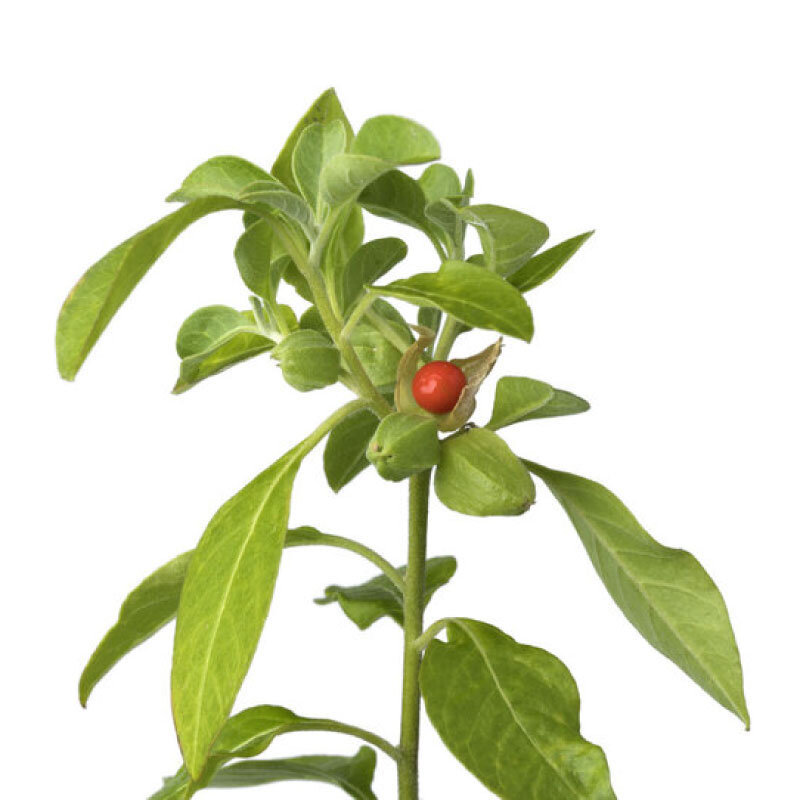What is Ashwagandha?
Ashwagandha is the kind of herb that is commonly used in Ayurveda (the traditional medicine system in India). It is derived from a Sanskrit word which means the smell of horses, which refers to both its unique smell and ability to increase strength. Its botanical name is Whitania Somnifera, also known as ‘Indian winter cherry’ or ‘Indian ginseng’. Ashwagandha has adaptogen properties that can help the body relieve stress.

Health benefits of ashwagandha (1, 2, 3)
Ashwagandha has been used for over 3000 years; thus, from its mere traditional usage, it has evolved into a modern capsule supplement where people can get it easily, anywhere. Though there are many health benefits of ashwagandha, some of them do not have a conclusive study finding.
The available scientific data support the conclusion that Ashwagandha is a regenerative tonic due to its multiple pharmacological actions like anti-stress, neuroprotective, anti-tumor, anti-arthritic, analgesic, and anti-inflammatory. It is useful for different types of diseases like Parkinson's, dementia, memory loss, stress-induced diseases, malignoma, and others.
Ashwagandha and neurodegenerative disease (1, 2, 4)
Neurodegenerative disease is usually caused by cognitive impairment. Diseases such as Alzheimer's, Parkinson's, and Huntington's are found to improve after the usage of ashwagandha, in the sense that it slows, stops, reverses, or removes neutritic athropy. It is also said to be used at any stage of the disease, even before a person has been diagnosed with mild forgetfulness.
Ashwagandha and mental health (4,5)
Ashwagandha induced a calming anxiolytic (anti-anxiety) effect that was comparable to the drug Lorazepam in all three standard tests: anxiety tests (the elevated plus-maze), social interaction, and feeding latency in an unfamiliar environment. Moreover, both Ashwagandha and Lorazepam reduced rat brain levels of tribulin, a marker of anxiety.
Ashwagandha also exhibited an antidepressant effect comparable with that induced by imipramine in two standard tests, the forced swim-induced behavioural despair’ and ‘learned helplessness’ tests. The investigations support the use of Ashwagandha as a mood stabiliser in clinical conditions of anxiety and depression.
Another study that was conducted using a prospective, randomised, controlled, double-blind method found that the group that was given ashwagandha root extract exhibited a significant reduction in cortisol level (the stress hormone) as compared to the group that received placebo.

Ashwagandha and arthritis (4, 1)
Ashwagandha is considered an analgesic since it has the ability to relieve pain. Ashwagandha acts on the nervous system to prevent pain signals from being sent. It is also thought to have some anti-inflammatory properties. For this reason, some research has shown it to be effective in treating arthritis.
References
-
Franziska Spritzler (2019). 12 Proven Health Benefits if Ashwagandha. https://www.medicalnewstoday.com/articles/318407 (Accessed on September 1, 2020).
-
Ashwagandha (n.d). https://www.webmd.com/vitamins/ai/ingredientmono-953/ashwagandha (Accessed on September 1, 2020).
-
Medical News Today. Benefits of ashwagandha (2016). https://www.medicalnewstoday.com/articles/318407 (Accessed on September 1, 2020).
-
Singh et. al. (2011). An Overview of Ashwagandha: A Rasayana (rejuvenator) of ayuverda. Afr J Tradit Complement Altern Med. 2011; 8(5 Suppl): 208–213. doi: 10.4314/ajtcam.v8i5S.9
-
Chandrasekar et. Al. (2012). A Prospective, Randomized Double-Blind, Placebo-Controlled Study of Safety and Efficacy of a High-Concentration Full-Spectrum Extract of Ashwagandha Root in Reducing Stress and Anxiety in Adults. Indian J Psychol Med. 2012 Jul-Sep; 34(3): 255–262. doi: 10.4103/0253-7176.106022: 10.4103/0253-7176.106022




